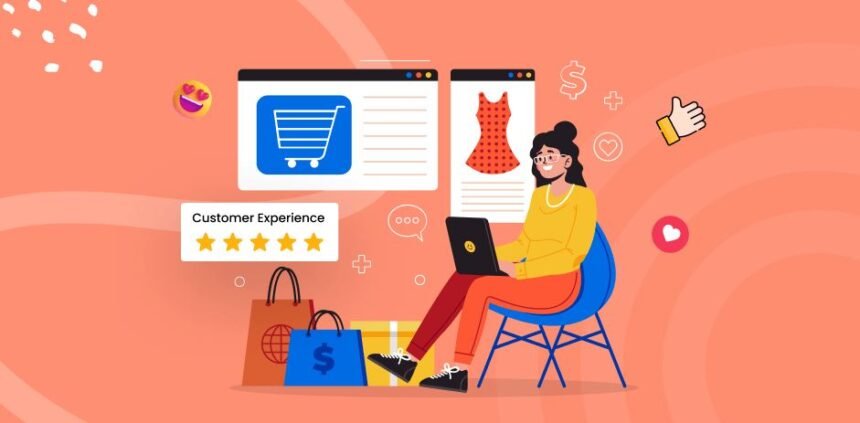Enterprise SaaS companies operate in a complex landscape characterized by high customer expectations, intense competition, and the ever-present challenge of customer retention. A cornerstone of success in this environment is a deep understanding and management of the customer lifecycle. This is where Customer Relationship Management (CRM) services come into play.
Understanding the Customer Lifecycle in Enterprise SaaS
The customer lifecycle in enterprise SaaS is a multifaceted journey that typically involves several distinct stages:
- Awareness: The customer becomes aware of the company and its product or service.
- Interest: The customer explores the product or service in more detail, showing increased interest.
- Consideration: The customer evaluates the product or service against alternatives and gathers information.
- Decision: The customer makes a purchase decision and becomes a customer.
- Onboarding: The customer is introduced to the product or service and begins using it.
- Adoption: The customer becomes proficient in using the product or service and realizes its value.
- Retention: The customer continues to use the product or service and renews their subscription.
- Expansion: The customer increases their usage of the product or service or purchases additional products or services.
- Advocacy: The customer becomes a loyal advocate for the company and its products or services.
Each stage presents unique opportunities and challenges for enterprise SaaS companies. A robust CRM system can help navigate these complexities and optimize customer interactions throughout the lifecycle.
The Role of CRM in Customer Lifecycle Management
A well-implemented CRM system serves as a centralized repository of customer data, providing a 360-degree view of each customer. This comprehensive understanding enables enterprise SaaS companies to:
- Personalize customer experiences: By leveraging customer data, companies can tailor marketing messages, sales pitches, and customer support interactions to individual needs and preferences.
- Improve lead management: CRM systems can help identify and qualify leads, prioritize sales efforts, and increase conversion rates.
- Accelerate sales cycles: By automating routine tasks and providing sales teams with the necessary information, CRM can streamline the sales process and shorten deal cycles.
- Enhance customer onboarding: CRM systems can facilitate efficient onboarding processes, ensuring customers quickly derive value from the product or service.
- Foster customer engagement: By tracking customer interactions and preferences, companies can deliver personalized communications and proactively address customer needs.
- Drive customer retention: CRM data can be used to identify customers at risk of churn and implement targeted retention strategies.
- Promote customer expansion: By understanding customer usage patterns and satisfaction levels, companies can identify opportunities for upselling and cross-selling.
- Build customer advocacy: CRM systems can help nurture customer relationships and encourage customers to become brand advocates.
Reducing Churn Rates with CRM
Customer churn is a significant challenge for enterprise SaaS companies. A robust CRM strategy can help mitigate churn by:
- Identifying churn risks: CRM data can be analyzed to identify customers exhibiting signs of churn, such as decreased product usage, support ticket volume, or negative sentiment.
- Implementing proactive retention efforts: By understanding the reasons for churn, companies can develop targeted retention campaigns to address customer concerns and prevent churn.
- Improving customer satisfaction: CRM data can be used to measure customer satisfaction and identify areas for improvement. By addressing customer pain points and enhancing the overall customer experience, companies can reduce churn.
- Encouraging customer loyalty: Building strong customer relationships through personalized interactions and exceptional service can increase customer loyalty and reduce churn.
The Impact of CRM on Enterprise SaaS Metrics
The effective use of CRM can have a profound impact on key enterprise SaaS metrics, including:
- Customer acquisition cost (CAC): By improving lead quality and sales efficiency, CRM can help reduce CAC.
- Customer lifetime value (CLTV): By increasing customer retention and driving expansion, CRM can contribute to higher CLTV.
- Churn rate: As discussed earlier, CRM can play a crucial role in reducing churn rates.
- Customer satisfaction: By providing a centralized view of customer interactions and preferences, CRM can help improve customer satisfaction.
The Role of CRM Consultants
While CRM systems offer immense potential, successfully implementing and optimizing them requires expertise. CRM consultants, like those at p99soft, can provide invaluable guidance to enterprise SaaS companies. By assessing specific business needs, recommending appropriate CRM solutions, and providing implementation support, CRM consultants can help organizations maximize the return on their CRM investment.
FAQs
1. What are the key features of a CRM system for enterprise SaaS companies?
A CRM system for enterprise SaaS companies should include features such as contact management, lead management, sales pipeline management, customer support ticketing, marketing automation, analytics, and integration capabilities.
2. How can CRM help improve customer support in enterprise SaaS?
CRM systems can centralize customer support information, enabling agents to quickly access customer history and resolve issues efficiently. Additionally, CRM can be used to track customer support metrics and identify areas for improvement.
3. What are some common CRM challenges faced by enterprise SaaS companies?
Common CRM challenges include data quality issues, user adoption, integration complexities, and the need for ongoing customization and maintenance.
4. How can CRM contribute to revenue growth in enterprise SaaS?
CRM can drive revenue growth by improving sales efficiency, increasing customer retention, and enabling cross-selling and upselling opportunities.
Conclusion
In the competitive world of enterprise SaaS, managing the customer lifecycle effectively is essential for long-term success. CRM services provide the foundation for building strong customer relationships, driving customer satisfaction, and reducing churn rates. By leveraging the power of CRM and seeking expert guidance from CRM consultants like those at p99soft, enterprise SaaS companies can unlock their full growth potential. The question is, are you ready to harness the power of CRM to transform your business?
Also know Revolutionizing the Way We Track and Manage Assets





